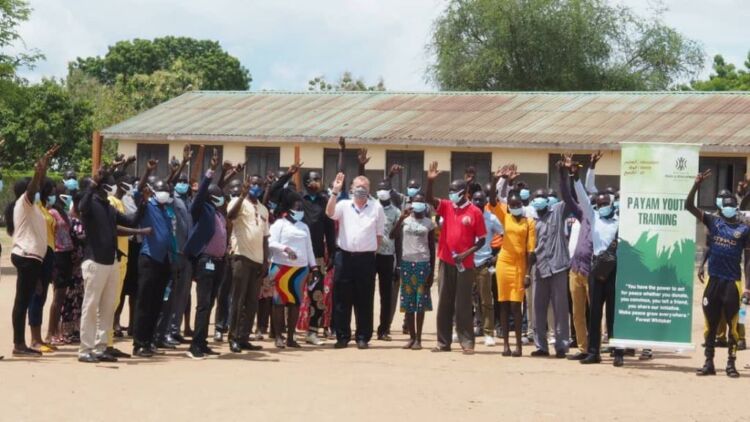
A Blog Post by Forest Whitaker
I started WPDI after meeting with former child soldiers, young people whose childhoods had been shattered by being forcibly enrolled into armed groups, by having to commit violent and sometimes gruesome acts, by being wounded, both physically and psychologically, and by being socially marginalized after their disbanding. Clearly, they were among the most disenfranchised people I had ever met. They had been victimized by a world they had not chosen to inhabit. And yet, they were aware, this was their world and they wanted a place of their own within it – so they could change it. Of course, the definition of change differed depending on who you asked. For some, it merely meant being accepted for what they could do rather than what they had been forced to be. For others, it meant helping those who had suffered the same ordeal or even ensuring that no child would face the same fate as theirs. The one thing they had in common was a desire to be taken seriously, and to be trusted with the driving wheel of change.
This impressed me. The young people I spoke to had been crushed by life. And yet, theirs was a hope that was communicative. This taught me that youths are more than a demographic group caught in between childhood and adulthood. Beyond their belonging to a group in a certain age bracket, they embody a human duality; they have been nurtured and are now tasked to nurture both themselves and others. Because of their exposure to both childhood and adulthood, they are especially likely to become aware of the resources one inherits from her or his family and community, as well as the responsibility each individual has to recreate these resources for present and future generations.
As a result, the notion of nurturing has deep resonances for youths. This is something that I have directly observed in the aspirations of the youths with whom I work through WPDI – sometimes even in the most literal sense when they come to us looking for opportunities to improve their livelihoods and those of their families. One of WPDI’s key activities is assisting young people in the development of small businesses that will provide them and their families with precious income and financial independence. To these youths, who live in violence- and poverty-affected communities, places where economic opportunities are scarce, having the capacity to feed yourself and your family is deeply empowering. This is probably why so many of the projects we support happen to be agrobusinesses. In fact, the majority of the 160 businesses we have helped create across Mexico, South Sudan, and Uganda are farms or community gardens. Some of them are very successful. I recall my visit two years ago to “Production of Healthy and Nutritious Food,” which is in Chiapas. This is an amazing project that two of our youth leaders, Victor and Jose, developed to train indigenous families how to grow vegetables through a system of community gardens. The project started with a few families – and soon others joined as they saw their neighbors growing their own food and even selling surpluses at local markets. Today, this project sustains nearly 400 people, both children and adults. The project is so successful that it reached national and even international attention, which materialized in prizes awarded by the Government of Mexico and UNDP.
There is indeed much to learn from Victor and Jose’s initiative. At the core of their idea was the observation that indigenous families often lacked access to affordable quality food, hence the very name of their project focusing on health. Rising from their remote communities of Chiapas, Victor and Jose have nevertheless captured an aspiration that is becoming growingly universal today, the quest for better modes of food production and consumption. Looking at these two young entrepreneurs and so many others like them, I am not surprised that the United Nations chose to celebrate this year’s International Youth Day with the theme: “Transforming food systems – Youth innovation for human and planetary health.” We know that, when unsustainable, food production has vast adverse consequences on the climate, on ecosystems, and on people. Human and planetary health are indeed at stake, calling for a transformation of our food systems. One thing is certain: we have no silver bullet to reinvent and recreate our food systems. But another thing is certain to me: we should listen to youths and empower them to help humanity innovate in how it nurtures itself. As I mentioned earlier, youths have a special relationship to both change and nurturing. When WPDI presented young people from conflict- and violence-affected places with resources to make a difference in their communities, many took it as an opportunity to bring healthy food to their communities. Whatever our age or background, we should look to this example, and learn from it.